G. Wayne Miller's Blog, page 22
October 17, 2015
Like Kirkus, Library Journal gives CAR CRAZY two thumbs up!

In another pre-publication review, Library Journal on Oct. 1, 2015, praises the book, calling it "engrossing and well-written" and "offering engaging asides" that will appeal to many different readers. Library Journal follows Kirkus Reviews' similarly praiseworthy critique (see below). Here is the full Library Journal review:
"Miller (Toy Wars; King of Hearts) looks at the impact on tradition, national infrastructure, legal precedent, and cultural change affected by the introduction of the automobile into America's landscape, detailing the battle for brand recognition and sales dominance that existed between car manufacturers such as Ford and Oldsmobile in the early 1900s.
"Contrasting car makers that embraced the freedom and power of the car against those that saw elegance and ease of use as an opportunity to profit greatly, Miller demonstrates the impact the burgeoning industry had on American society and laws. Offering engaging asides, the author shows how the cultural divide between those who were auto aficionados and others who were not led to antagonism, occasional violent outbursts, and ultimately a redefinition of societal norms and legal standing.
"VERDICT: Engrossing and well-written, Miller's study of the cultural impact of the automobile is also a testament to the elements of the vehicle that car enthusiasts find endearing. This work will attract fans of motor sports as well as entrepreneurs and anyone interested in the power of technology to enact social change."

Here's what Kirkus said, on September 3, 2015:
"A chronicle of the frantic, ultracompetitive, and heroic early days of automobile manufacturing.
"The turn of the 20th century witnessed some of the most profound technological advances in human history. Chief among them was the development of the automobile as a mass-produced consumer product. Beginning with the first commercial enterprise founded by brothers Charles and J. Frank Duryea in Springfield, Massachusetts, in 1893, Americans quickly grew infatuated, skeptical, and outright hostile to this novel contraption.
"In his buoyant and charming narrative, Miller (Drowned: A Different Kind of Zombie Tale, 2015, etc.) sets the foundation for the American century by charting the intense competition, rivalries, successes, and failures of the early automotive industry. The author profiles many of the titans and personalities of the era such as Henry Ford, Oldsmobile founder Ransom Olds and his famed Curved Dash, General Motors creator William C. Durant, driver Barney Oldfield, and others.
"Aside from the industrial upheaval caused by auto manufacturing, Miller also highlights the drastic social changes it caused. Catering to young adventurers and the wealthy elite, mostly from urban centers, the automobile inspired enthusiast groups like the League of American Wheelmen all across the country. Not all reactions were positive. Rural communities, dependent on horses, viewed the new mode of transportation as a direct affront to their way of life and threatened to sabotage cross-country racers passing through their towns. From cottage industry to mass-production assembly lines, the development of the automobile represents a quintessentially American story of industrial capitalism and the fiercely driven personalities that carved their fortunes and legacies out of seemingly nothing.
"Capturing the energy and ambition of a time when optimism in the American spirit was unparalleled, Miller also shows that despite the car’s profound effect on American culture, it was not the modern panacea some predicted. A must for car lovers and plenty of interesting material to keep other curious readers flipping pages."
Published on October 17, 2015 03:15
October 15, 2015
Indies like CAR CRAZY!
Enjoyed meeting independent booksellers, friends, authors and some of the Perseus Books sales folks at the annual October New England Independent Booksellers Association convention in Providence. Here I am with Pamela Fenner of Michaelmas Press, one of many nice people I met!
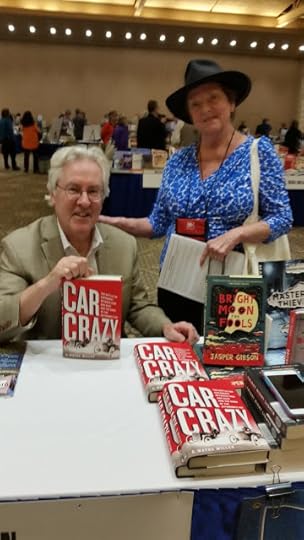

Published on October 15, 2015 04:14
October 5, 2015
Talk and signing at the Barrington Public Library
Please join me at 7 p.m. Tuesday, December 1, for a talk and signing at the Barrington (R.I.) Public Library! More details here.
And don't forget -- the book launches with a party 2 p.m. Sunday, November 1, at the Pell Center, 518 Bellevue Ave., Newport, R.I. Free and open to all, with displays of rare old cars -- and we do mean old, as in a 1904 Oldsmobile and a Model T. Learn more.
And don't forget -- the book launches with a party 2 p.m. Sunday, November 1, at the Pell Center, 518 Bellevue Ave., Newport, R.I. Free and open to all, with displays of rare old cars -- and we do mean old, as in a 1904 Oldsmobile and a Model T. Learn more.
Published on October 05, 2015 05:52
September 12, 2015
Registration for the free launch party now open
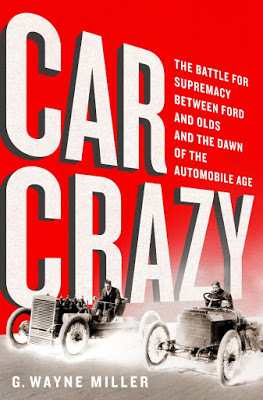 LAUNCH PARTY!
LAUNCH PARTY!Please join us on Sunday, Nov. 1, 2015, in Newport, R.I., at the official launch party for the book! Free and open to the public and featuring a reading, a signing, refreshments and a display of very cool classic antique cars, including a 1904 Curved Dash Oldsmobile and a 1912 Model T.
The event will be from 2 p.m. to 4 p.m. November 1 at the Pell Center, 518 Bellevue Avenue, Newport, R.I., 02840. Register at Eventbrite or on the CAR CRAZY Facebook page. Held in conjunction with The Pell Center at Salve Regina University and the Story in the Public Square program (where author G. Wayne Miller is director and co-founder).
Some cars provided by Newport's great Audrain Auto Museum, right down the street on Bellevue Avenue.

Published on September 12, 2015 09:30
September 11, 2015
CAR CRAZY is coming November 3, 2015!
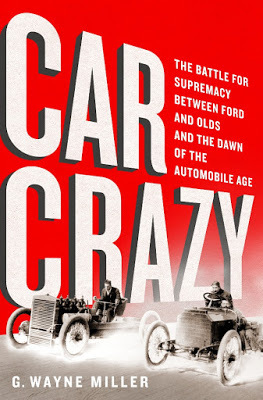 Fasten your seat belts for the imminent arrival of my ninth book of non-fiction (and 16th book overall). On Nov. 3, 2015, Perseus Books/PublicAffairs will publish
CAR CRAZY:
The Battle for Supremacy between Ford and Olds and the Dawn of the Automobile Age.
Fasten your seat belts for the imminent arrival of my ninth book of non-fiction (and 16th book overall). On Nov. 3, 2015, Perseus Books/PublicAffairs will publish
CAR CRAZY:
The Battle for Supremacy between Ford and Olds and the Dawn of the Automobile Age.
CAR CRAZY will appeal to readers of history, biography, business, sports and narrative non-fiction -- and also to car people of all kinds, from owners to fans of auto racing. "A must for car lovers and plenty of interesting material to keep other curious readers flipping pages," wrote Kirkus in the first pre-publication review.
From the publisher: "In Car Crazy, G. Wayne Miller, author of Toy Wars and Men and Speed, takes readers back to the wild and wooly years of the early auto era: turn-of-the-century America. The motorcar was new, paved roads few, and devotees of this unregulated technology battled with citizens who thought the motor vehicle a dangerous scourge that was shattering a more peaceful way of life. As the machine transformed culture, corporate battles transformed the economic landscape."
Read more about the book at the CAR CRAZY book site -- and stay tuned for updates, which will be posted here at The Works of G. Wayne Miller.
Published on September 11, 2015 07:29
January 26, 2015
Daisy J. Gabrielle, 1918 - 2015
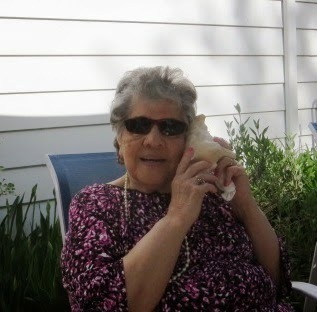
My remarkable mother-in-law died on Jan. 2, 2015. This is the eulogy I gave at her service a few days later.
Good afternoon. We are here to celebrate the life of an extraordinary woman, Daisy Gabrielle -- mother, grandmother, great-grandmother, great-great grandmother and friend, someone who touched so many people in her 96 years, always in good ways.
Daisy was, first and foremost, a woman of noble spirit -- and a spiritual woman who understood the deeper meanings and joys of life. She believed in dreams and in souls that are eternal. She appreciated beauty and was herself beautiful. She was wise, loving and kind -- to her family and to everyone. She was generous. She was truthful. She knew serenity. She cared for and showed compassion for others. She taught us many important lessons. She made no harsh demands or judgments. She knew how to listen. She laughed easily and had a gift for making others laugh.
Humor, she understood, was good for the heart and the soul.
Music was good for them, too. How often did she burst into song in that wonderful voice of hers! She knew countless tunes, some going back to her youth, and she could sing them all melodically, frequently finishing with her distinctive smile or laugh. I can hear it now, one of the last songs she sang for my wife and me: Show me the way to go home. It was a somewhat rowdy tune, and she performed it with a hint of the devil in her eye.
She also loved to dance. I never saw her, but I can easily imagine her dancing up the proverbial storm as a young woman in New Orleans.
Despite all that she accomplished in life, Daisy was a woman of modesty and humility.
She played a role in the 1960s Civil Rights movement, when she courageously defied angry bigots who boycotted a desegregated New Orleans school by sending her daughter, one of the only white children to cross screaming picket lines, under police guard -- but you never heard her saying much about that other than that she simply did the right thing. The only times I ever heard Daisy boast were when she was discussing her family -- and her beloved husband Jimmy, who she missed terribly. She went to be with him last Friday, 12 years and two days after he left us. We remember him today, too.
Let me read part of a letter Daisy wrote to a New Orleans newspaper 64 years ago, when racism and intolerance inflamed the south and she took a stand. In it, you will hear her belief in equality, forgiveness and justice for all:
Since November 14, I have been boycotted and followed to my home by a mob of mothers who used obscene language with threats of beatings if I did not take my child out of school.
Let it be said that I feel nothing but compassion towards these women who in fear and hatred so easily forget what America actually stands for: Freedom of thought, freedom of speech, and freedom of action.
It is these qualities, divine in essence, that are the core of our civilization. Tyranny and suppression can only thwart its own purpose in the end. For the sake of their beloved children, may every American mother remember it in time.
We must walk with progress in all aspects of right living...
I was a latecomer to Daisy’s family, but she welcomed me warmly -- once she was certain of my love and loyalty for her daughter, and determined that, as she liked to joke, we really did go together like two peas in a pod. To which I always responded, “you mean like carrots and peas.” It was a silly joke, but it made the two of us laugh mightily.
So I feel lucky and blessed to have known Daisy -- and to have been able to receive her warm hugs and kisses, and the benefit of her wisdom, and to admire her grace and dignity as she faced the infirmities of old age.
I hold precious my many memories of my wife and me with her -- our Sunday brunches and walks, Christmas Eves and Mother’s Days and dinners at our house, Thanksgivings, her birthday parties, our conversations on the phone. Daisy’s company always was a privilege and a pleasure. Everyone here knows what I mean.
One day last month, we drove Daisy to East Matunuck Beach.
A cold wind was blowing. No one else was around. Daisy was bundled warmly in scarf and coat and we helped her up the pavilion ramp, where she could face beautiful Block Island Sound. The sun lit up the waves and the surf pounded -- and but for the cold, you could picture endless summer. Daisy sat on her walker, taking everything in. I remember the smile on her face. I remember the glow of her presence. I imagined that beneath her sunglasses, her eyes sparkled. I imagined that the ocean, which she loved, brought back important memories.
When we asked if she wanted to leave because it was so windy and cold, she said “just a few more minutes,” as if knowing it would be her final visit to the sea. In her wisdom, I believe she did.
My wife would like me to read an article Daisy gave her many years ago that expresses the way she felt toward her children.
“I have faith in you because I have faith in God in you. I do not pray for you to be better than you are; I pray for you to be as good as you are. I pray for you to express your true self.
“I do not pray for you to be happy in the way I think your happiness lies. I pray for you to follow your indwelling light, which always leads to fulfillment and happiness.
“I do not pray for you to be free from responsibilities. I pray for you to be free from worry and anxiety -- to be the fearless, wise, confident, capable being that you are in Spirit.
“I do not pray for you to conform to my idea of success and achievement, I pray for you to express and expand your god-given abilities and talents in your own unique and wonderful way.
“I pray for you, knowing that you are beloved of God. I bless you without reservation. I love you as God loves you.”
Godspeed, Daisy. We will love and cherish you always.
Published on January 26, 2015 14:30
January 8, 2015
Je Suis Charlie
Published on January 08, 2015 11:17
December 11, 2014
Remembering Dad
I wrote and published this two years ago, on the tenth anniversary of my father's death. It's becoming an annual tradition to repost. His memory gives him life. I miss him.
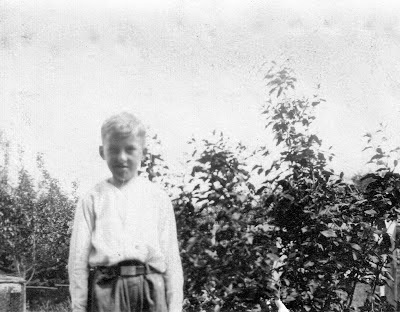 Roger L. Miller as a boy, 1920s.My Dad and Airplanes
Roger L. Miller as a boy, 1920s.My Dad and Airplanesby G. Wayne Miller
I live near an airport. Depending on wind direction and other variables, planes sometimes pass directly over my house as they climb into the sky. If I’m outside, I always look up, marveling at the wonder of flight. I’ve witnessed many amazing developments -- the end of the Cold War, the advent of the digital world, for example -- but except perhaps for space travel, which of course is rooted at Kitty Hawk, none can compare.
I also always think of my father, Roger L. Miller, who died ten years ago today.
Dad was a boy on May 20, 1927, when Charles Lindbergh took off in a single-engine plane from a field near New York City. Thirty-three-and-a-half hours later, he landed in Paris. That boy from a small Massachusetts town who became my father was astounded, like people all over the world. Lindbergh’s pioneering Atlantic crossing inspired him to get into aviation, and he wanted to do big things, maybe captain a plane or even head an airline. But the Great Depression, which forced him from college, diminished that dream. He drove a school bus to pay for trade school, where he became an airplane mechanic, which was his job as a wartime Navy enlisted man and during his entire civilian career. On this modest salary, he and my mother raised a family, sacrificing material things they surely desired.
My father was a smart and gentle man, not prone to harsh judgment, fond of a joke, a lover of newspapers and gardening and birds, chickadees especially. He was robust until a stroke in his 80s sent him to a nursing home, but I never heard him complain during those final, decrepit years. The last time I saw him conscious, he was reading his beloved Boston Globe, his old reading glasses uneven on his nose, from a hospital bed. The morning sun was shining through the window and for a moment, I held the unrealistic hope that he would make it through this latest distress. He died four days later, quietly, I am told. I was not there.
Like others who have lost loved ones, there are conversations I never had with my Dad that I probably should have. But near the end, we did say we loved each other, which was rare (he was, after all, a Yankee). I smoothed his brow and kissed him goodbye.
So on this 10th anniversary, I have no deep regrets. But I do have two impossible wishes.
My first is that Dad could have heard my eulogy, which I began writing that morning by his hospital bed. It spoke of quiet wisdom he imparted to his children, and of the respect and affection family and others held for him. In his modest way, he would have liked to hear it, I bet, for such praise was scarce when he was alive. But that is not how the story goes. We die and leave only memories, a strictly one-way experience.
My second wish would be to tell Dad how his only son has fared in the last decade. I know he would have empathy for some bad times I went through and be proud that I made it. He would be happy that I found a woman I love: someone, like him, who loves gardening and birds. He would be pleased that my three children are making their way in the world, and that he now has two great-granddaughters, wonderful little girls both. In his humble way, he would be honored to know how frequently I, my sisters and my children remember and miss him. But that is not how the story goes, either. We send thoughts to the dead, but the experience is one-way. We treasure photographs, but they do not speak.
Lately, I have been poring through boxes of black-and-white prints handed down from Dad’s side of my family. I am lucky to have them, more so that they were taken in the pre-digital age -- for I can touch them, as the people captured in them surely themselves did so long ago. I can imagine what they might say, if in fact they could speak.
Some of the scenes are unfamiliar to me: sailboats on a bay, a stream in winter, a couple posing on a hill, the woman dressed in fur-trimmed coat. But I recognize the house, which my grandfather, for whom I am named, built with his farmer’s hands; the coal stove that still heated the kitchen when I visited as a child; the birdhouses and flower gardens, which my sweet grandmother lovingly tended. I recognize my father, my uncle and my aunts, just children then in the 1920s. I peer at Dad in these portraits (he seems always to be smiling!), and the resemblance to photos of me at that age is startling, though I suppose it should not be.
A plane will fly over my house today, I am certain. When it does, I will go outside and think of young Dad, amazed that someone had taken the controls of an airplane in America and stepped out in France. A boy with a smile, his life all ahead of him.
A version of this essay appeared on the op-ed page of The Providence Journal on Dec.12, 2012.
Published on December 11, 2014 02:42
November 25, 2014
Providence Journal publishes ongoing series on mental health
Readers of The Providence Journal and this blog know that the newspaper has counted stories about mental health and people living with mental illness among its highest public-service efforts since the 1930s. The Journal's long devotion to these issues has included print and photographic exposes of inhumane conditions at a Rhode Island public psychiatric hospital (the old Institute of Mental Health); extensive coverage and editorial-page support of the creation of the state's community mental health system, once held as a national model; and many profiles of people with mental illness that have emphasized individuals' humanity.
I have been privileged to have played a role in these efforts for many years. And so I was pleased and honored when the paper this fall -- at my urging, and with the full support of executive editor Karen Bordeleau, deputy executive editor Sue Areson and project editor John Kostrzewa -- began a new series: Mental Health in Rhode Island.

-- The series launched on Oct. 26 with a look at problems in today's public system.
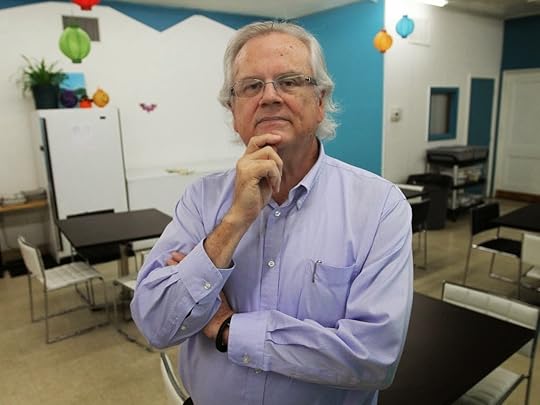 Jim McNulty, national authority, lives with bipolar disorder.
Jim McNulty, national authority, lives with bipolar disorder.
-- It continued on Oct. 27 with a history of the community effort, and funding, gaps in service, statewide fragmentation and other contemporary issues. Readers were offered a poll and superb interactive graphics by my colleague Paul Edward Parker.
 Susan Jacobsen, head of the Mental Health Association of R.I.
Susan Jacobsen, head of the Mental Health Association of R.I.
-- Part 3 of the series was published on Nov. 2 -- an outstanding look at homeless people with mental illness by my partner on the series, Paul Davis.
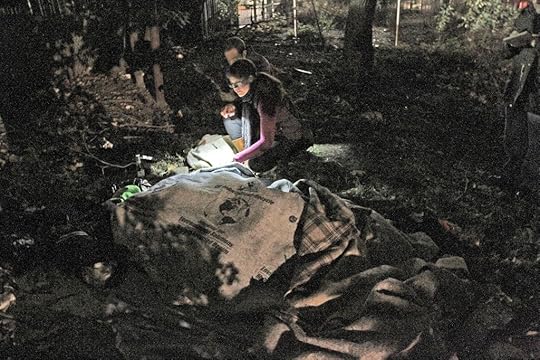 Homeless people behind Kentucky Fried Chicken, Broad Street, Providence.
Homeless people behind Kentucky Fried Chicken, Broad Street, Providence.
-- A record crowd attended The Journal's Nov. 6 Publick Occurrences forum, “Rhode Island’s Mental Health System: Condition Critical?”
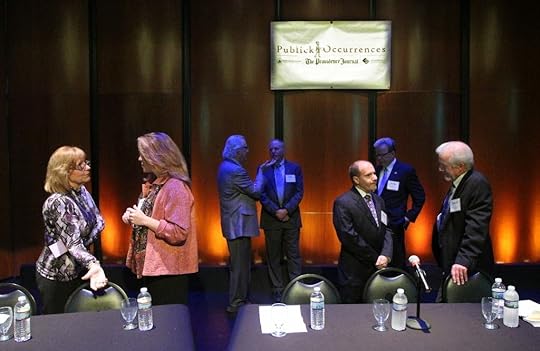 Publick Occurrences, Nov. 6, 2014, Rhode Island College.
Publick Occurrences, Nov. 6, 2014, Rhode Island College.
-- The language of mental health and mental illness was explored in a Nov. 23 story.
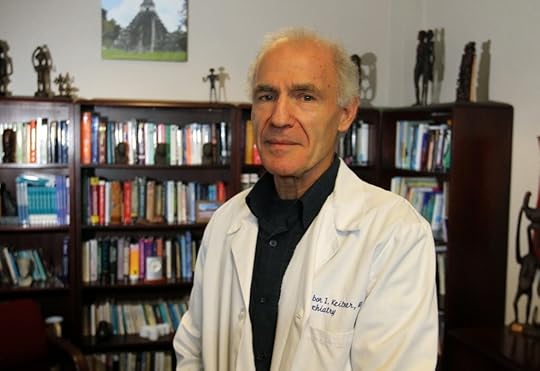 Dr. Gabor Keitner, R.I. and Miriam Hospitals, Brown Med.
Dr. Gabor Keitner, R.I. and Miriam Hospitals, Brown Med.
-- The Criminalization of Mental Illness, a forum at Butler Hospital, sponsored by the Mental Health Association of Rhode Island, story published Dec. 9.
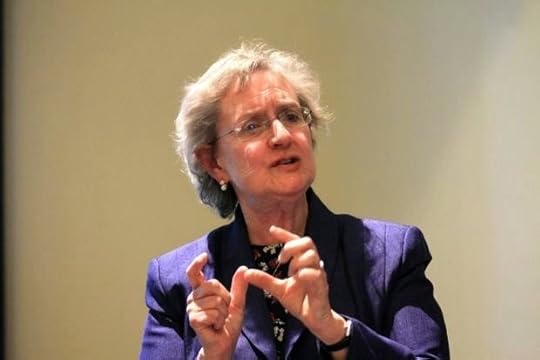 Madelon Baranoski, associate professor of psychiatry at Yale
Madelon Baranoski, associate professor of psychiatry at Yale
-- Survey shows high incidence of mental illness, trauma among Rhode Island's homeless, story by Paul Davis, Dec. 10.
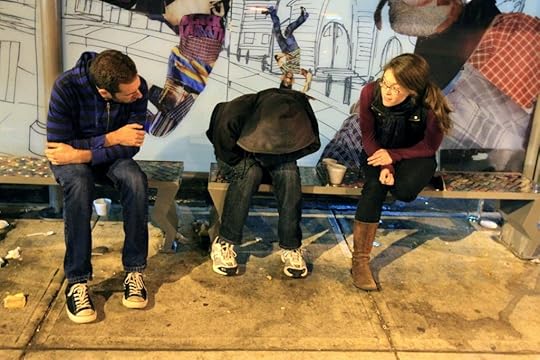 Dr. Craig Kaufmann, RI Homeless Coalition's Megan Smith, with man at bus stop.
Dr. Craig Kaufmann, RI Homeless Coalition's Megan Smith, with man at bus stop.
-- Hundreds of people who need mental-health care forced wrongly into prison, Dec. 14.
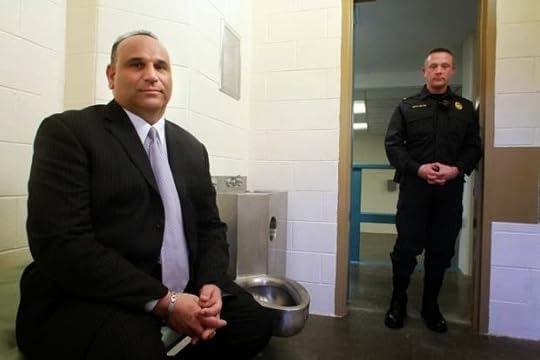 Clinical Chief Louis Cerbo, Correctional Officer Wm. Galligan.
Clinical Chief Louis Cerbo, Correctional Officer Wm. Galligan.
-- ‘Did I belong somewhere? Yes. Was prison the place? … Absolutely not,’ Dec. 14.
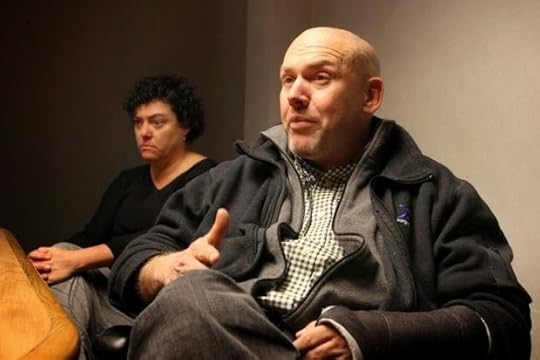 John Vitale: homeless, and a person living with mental illness.
John Vitale: homeless, and a person living with mental illness.
-- R.I. prison system lacks resources to care for mentally ill inmates, Dec. 15.
 D-Mod, High Security, R.I. state prison.
D-Mod, High Security, R.I. state prison.
Stay tuned. Much more to come...
All photos courtesy of The Providence Journal. Thanks, guys!
I have been privileged to have played a role in these efforts for many years. And so I was pleased and honored when the paper this fall -- at my urging, and with the full support of executive editor Karen Bordeleau, deputy executive editor Sue Areson and project editor John Kostrzewa -- began a new series: Mental Health in Rhode Island.

-- The series launched on Oct. 26 with a look at problems in today's public system.
 Jim McNulty, national authority, lives with bipolar disorder.
Jim McNulty, national authority, lives with bipolar disorder.-- It continued on Oct. 27 with a history of the community effort, and funding, gaps in service, statewide fragmentation and other contemporary issues. Readers were offered a poll and superb interactive graphics by my colleague Paul Edward Parker.
 Susan Jacobsen, head of the Mental Health Association of R.I.
Susan Jacobsen, head of the Mental Health Association of R.I.-- Part 3 of the series was published on Nov. 2 -- an outstanding look at homeless people with mental illness by my partner on the series, Paul Davis.
 Homeless people behind Kentucky Fried Chicken, Broad Street, Providence.
Homeless people behind Kentucky Fried Chicken, Broad Street, Providence.-- A record crowd attended The Journal's Nov. 6 Publick Occurrences forum, “Rhode Island’s Mental Health System: Condition Critical?”
 Publick Occurrences, Nov. 6, 2014, Rhode Island College.
Publick Occurrences, Nov. 6, 2014, Rhode Island College.-- The language of mental health and mental illness was explored in a Nov. 23 story.
 Dr. Gabor Keitner, R.I. and Miriam Hospitals, Brown Med.
Dr. Gabor Keitner, R.I. and Miriam Hospitals, Brown Med. -- The Criminalization of Mental Illness, a forum at Butler Hospital, sponsored by the Mental Health Association of Rhode Island, story published Dec. 9.
 Madelon Baranoski, associate professor of psychiatry at Yale
Madelon Baranoski, associate professor of psychiatry at Yale-- Survey shows high incidence of mental illness, trauma among Rhode Island's homeless, story by Paul Davis, Dec. 10.
 Dr. Craig Kaufmann, RI Homeless Coalition's Megan Smith, with man at bus stop.
Dr. Craig Kaufmann, RI Homeless Coalition's Megan Smith, with man at bus stop.-- Hundreds of people who need mental-health care forced wrongly into prison, Dec. 14.
 Clinical Chief Louis Cerbo, Correctional Officer Wm. Galligan.
Clinical Chief Louis Cerbo, Correctional Officer Wm. Galligan.-- ‘Did I belong somewhere? Yes. Was prison the place? … Absolutely not,’ Dec. 14.
 John Vitale: homeless, and a person living with mental illness.
John Vitale: homeless, and a person living with mental illness.-- R.I. prison system lacks resources to care for mentally ill inmates, Dec. 15.
 D-Mod, High Security, R.I. state prison.
D-Mod, High Security, R.I. state prison.Stay tuned. Much more to come...
All photos courtesy of The Providence Journal. Thanks, guys!
Published on November 25, 2014 10:53
Providence Journal launches series on mental health
Readers of The Providence Journal and this blog know that the newspaper has counted stories about mental health and people living with mental illness among its highest public-service efforts since the 1930s. The Journal's long devotion to these issues has included print and photographic exposes of inhumane conditions at a Rhode Island public psychiatric hospital (the old Institute of Mental Health); extensive coverage and editorial-page support of the creation of the state's community mental health system, once held as a national model; and many profiles of people with mental illness that have emphasized individuals' humanity.
I have been privileged to have played a role in these efforts for many years. And so I was pleased and honored when the paper this fall -- at my urging, and with the full support of executive editor Karen Bordeleau, deputy executive editor Sue Areson and project editor John Kostrzewa -- began a new series: Mental Health in Rhode Island.

-- The series launched on Oct. 26 with a look at problems in today's public system.
 Jim McNulty, national authority, lives with bipolar disorder.
Jim McNulty, national authority, lives with bipolar disorder.
-- It continued on Oct. 27 with a history of the community effort, and funding, gaps in service, statewide fragmentation and other contemporary issues. Readers were offered a poll and superb interactive graphics by my colleague Paul Edward Parker.
 Susan Jacobsen, head of the Mental Health Association of R.I.
Susan Jacobsen, head of the Mental Health Association of R.I.
-- Part 3 of the series was published on Nov. 2 -- an outstanding look at homeless people with mental illness by my partner on the series, Paul Davis.
 Homeless people behind KFC, Broad Street, Providence.
Homeless people behind KFC, Broad Street, Providence.
-- A record crowd attended The Journal's Nov. 6 Publick Occurrences forum, “Rhode Island’s Mental Health System: Condition Critical?”
 Publick Occurrences, Nov. 6, 2014, Rhode Island College.
Publick Occurrences, Nov. 6, 2014, Rhode Island College.
-- The language of mental health and mental illness was explored in a Nov. 23 story.
 Dr. Gabor Keitner, R.I. & Miriam Hospitals, Brown Med. School.
Dr. Gabor Keitner, R.I. & Miriam Hospitals, Brown Med. School.
Stay tuned! Much more to come...
All photos courtesy of The Providence Journal. Thanks, guys!
I have been privileged to have played a role in these efforts for many years. And so I was pleased and honored when the paper this fall -- at my urging, and with the full support of executive editor Karen Bordeleau, deputy executive editor Sue Areson and project editor John Kostrzewa -- began a new series: Mental Health in Rhode Island.

-- The series launched on Oct. 26 with a look at problems in today's public system.
 Jim McNulty, national authority, lives with bipolar disorder.
Jim McNulty, national authority, lives with bipolar disorder.-- It continued on Oct. 27 with a history of the community effort, and funding, gaps in service, statewide fragmentation and other contemporary issues. Readers were offered a poll and superb interactive graphics by my colleague Paul Edward Parker.
 Susan Jacobsen, head of the Mental Health Association of R.I.
Susan Jacobsen, head of the Mental Health Association of R.I.-- Part 3 of the series was published on Nov. 2 -- an outstanding look at homeless people with mental illness by my partner on the series, Paul Davis.
 Homeless people behind KFC, Broad Street, Providence.
Homeless people behind KFC, Broad Street, Providence.-- A record crowd attended The Journal's Nov. 6 Publick Occurrences forum, “Rhode Island’s Mental Health System: Condition Critical?”
 Publick Occurrences, Nov. 6, 2014, Rhode Island College.
Publick Occurrences, Nov. 6, 2014, Rhode Island College.-- The language of mental health and mental illness was explored in a Nov. 23 story.
 Dr. Gabor Keitner, R.I. & Miriam Hospitals, Brown Med. School.
Dr. Gabor Keitner, R.I. & Miriam Hospitals, Brown Med. School.Stay tuned! Much more to come...
All photos courtesy of The Providence Journal. Thanks, guys!
Published on November 25, 2014 10:53




